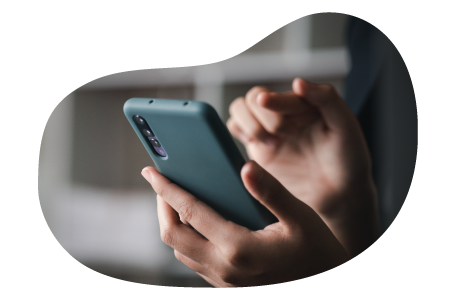

Product liability insurance
Product liability insurance
Product liability insurance protects businesses against the cost of a lawsuit if a customer claims a product the business sold or manufactured led to an injury or property damage.
Why do you need product liability insurance?
If your business sells a product that injures a customer, you could be held liable—even if you weren't responsible. Product liability lawsuits are common and can be extremely costly, which is why product liability insurance is so important.
This policy is sometimes called products-completed operations insurance. It covers almost every type of product and "completed operations," or work completed by your company like a new roof or flooring.
This policy helps pay for attorney's fees, court-ordered judgments, settlements, and other costs when a customer sues over harm caused by a product or completed project. It's usually included with general liability insurance.

This policy covers incidents stemming from:
- Manufacturing defects, such as incorrect materials
- Design defects, such as an unstable structure
- Marketing defects, such as a lack of warning labels
- Allergic reactions to foods or cosmetics
- Food contamination from packaged foods or a served meal
- Strict liability, for claims when your business is not at fault
What is covered by product liability insurance?
Product liability insurance covers a wide range of harmful incidents related to your business's products and completed operations.
Specifically, here's what you can expect your policy to cover:
Bodily injuries
If your product causes physical harm, such as a burn or a broken bone, product liability insurance can help pay for the resulting legal fees. That includes attorney's fees, court-ordered judgments, and settlements.
For example, a chair that was assembled incorrectly and is missing a screw might topple over and injure someone who sits in it.
Illnesses and diseases
This policy provides coverage if a customer claims that a product sold at your store or manufactured by your business caused a disease or illness. That includes adverse reactions, cancer, and respiratory diseases.
Allergic reactions are one such example. The cause might be cosmetics applied at a beauty salon, or an undisclosed allergen in a dish served at a restaurant.
Damaged or destroyed property
Property damage caused by a defective product can result in a lawsuit against the designer, retailer, or manufacturer. A customer could sue your business as a way to help cover the cost of repairing or replacing their damaged belongings.
For example, a customer could sue your smoke shop to recoup their losses when a vape pen overheats and starts a fire at their apartment, damaging their furniture.
Wrongful death
Lawsuits that allege wrongful death due to product defects are also covered by product liability insurance. This policy can cover burial costs, attorney's fees, and other expenses related to a fatal incident involving a product.
Examples include toys that lack warning labels, faulty airbags, and defective car seats.
How much does product liability insurance cost?

Product liability insurance is typically included with commercial general liability insurance.
The average general liability premium is $42 per month, or about $500 annually, for TechInsurance customers.
Factors that affect product liability insurance costs include:
- Type of business
- Business operations
- Location
- Number of employees
- Policy limits and deductible
- Claims history
Hear from customers like you who purchased general liability coverage.
Who should get product liability insurance coverage?
Product liability insurance is a crucial part of risk management for retailers, manufacturers, wholesalers, distributors, importers, and any other business in the supply chain.
It's also a key policy in the construction industry, where a customer might sue over water damage from a leaky roof or appliance installed by your business.
Additionally, food and beverage businesses should carry this coverage to protect against lawsuits related to contaminated food and allergic reactions.
Some businesses are required to have product liability insurance, such as:
- Amazon sellers with gross proceeds of over $10,000 per month
- Walmart sellers with a gross merchandise value of $100,000 per 12 months
- Cannabis businesses in Massachusetts and Michigan
Product liability claims can be extremely expensive, which is why you should make sure you're covered even in situations where it's not required.
Top professions that need product liability insurance

What isn't covered by product liability insurance?
Product liability insurance doesn't cover every risk related to products and the work done by your business. There's a wide range of business insurance policies for different exposures, such as:
Workplace injuries
If an employee suffers a work-related injury or comes down with an occupational disease, then workers' compensation insurance covers their medical expenses. It also provides disability benefits while they are recovering and unable to work.
Most insurance companies sell policies that include employer's liability insurance, which covers legal defense costs in case your business is held responsible for the injury or illness.
Damaged inventory
Damaged or stolen inventory is covered by commercial property insurance, which protects your building and its contents. It covers burglary, vandalism, fires, storms, burst pipes, and other incidents that cause a loss of property.
Small businesses can often bundle this coverage with general liability insurance in a business owner's policy (BOP) for a discount.
Product recalls
Product recall insurance prevents financial losses related to product recalls. It can help pay for restocking, lost profits, shipping, and similar expenses.
Contact an insurance agent if you're interested in adding this coverage to your general liability policy.
Temporary closures
Business interruption insurance covers the cost of a temporary closure tied to a fire, storm, or other covered property claim. It helps pay for employee wages, rent, lost income, and day-to-day operating expenses.
Insurance carriers often include this coverage in a business owner’s policy. It’s sometimes referred to as business income insurance.
Business owner’s policy (BOP)
Workers' compensation insurance
Professional liability insurance
Commercial auto insurance
Cyber liability insurance
Other common questions about product liability insurance coverage
Does general liability insurance cover product liability?
Yes. In most cases, product liability coverage is included when you buy a general liability insurance policy.
General liability insurance covers third-party bodily injuries and personal injuries, which includes everything from slip-and-fall accidents to slander. When it includes product liability insurance, it also covers harm caused by products sold by your business, or work completed by your company.
If your policy does not include product liability insurance, you can add it as a rider, also called an endorsement.
Will product liability insurance cover issues with apps or software?
No. Product liability insurance is designed for physical damage, such as a bodily injuries and property damage. However, issues with apps and software can still harm your customers, typically by causing them to lose time and money.
Errors and omissions insurance (E&O) protects app developers, software developers, and other tech professionals against claims related to their products. It helps pay for legal costs stemming from professional negligence, such as a breach of contract, mistake, or missed deadline that caused a client's financial loss.
This policy is also referred to as professional liability insurance. Many tech companies bundle it with cyber insurance in a policy called tech E&O, which adds protection against data breach lawsuits.
If your business isn't at fault, is product liability coverage still required?
Yes. Your business can still be held liable for damages caused by a defective product, even if you weren't responsible in any way.
Even if another business made the product, or failed to include proper warnings, a customer could file a lawsuit against your business for their loss. Any business that sells, makes, or distributes products is open to these types of claims, and could end up paying hundreds of thousands of dollars in legal costs.
The best way to protect your business is with product liability insurance. On top of that, it's important to do quality control (QC) and carefully examine any items you sell or manufacture.
In other industries, this could mean adhering to strict food safety practices, or following a construction quality control checklist.
Keep in mind, even if your business isn’t high risk, carrying a product liability insurance policy can mean the difference between bankruptcy and recovering quickly from a lawsuit.
























